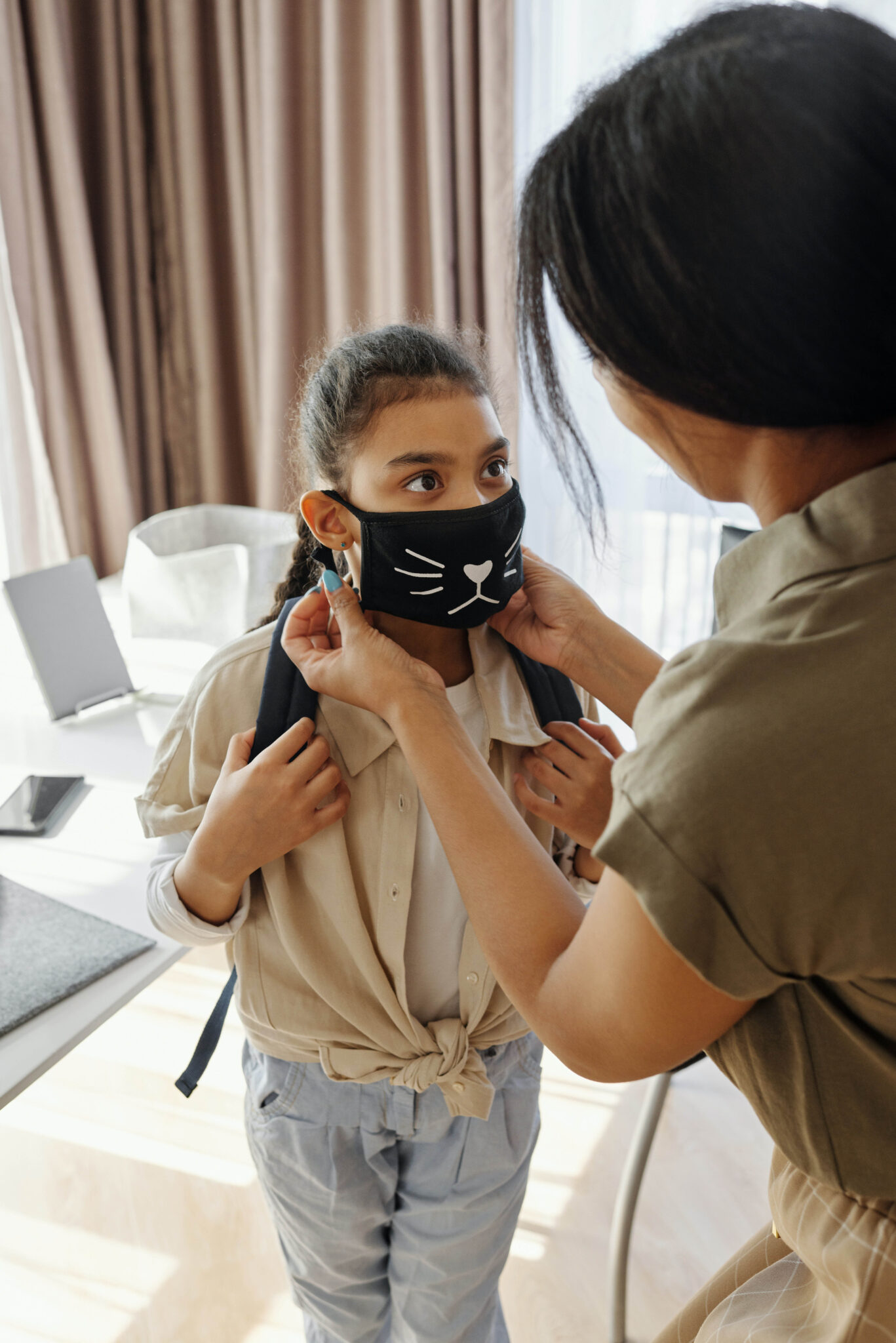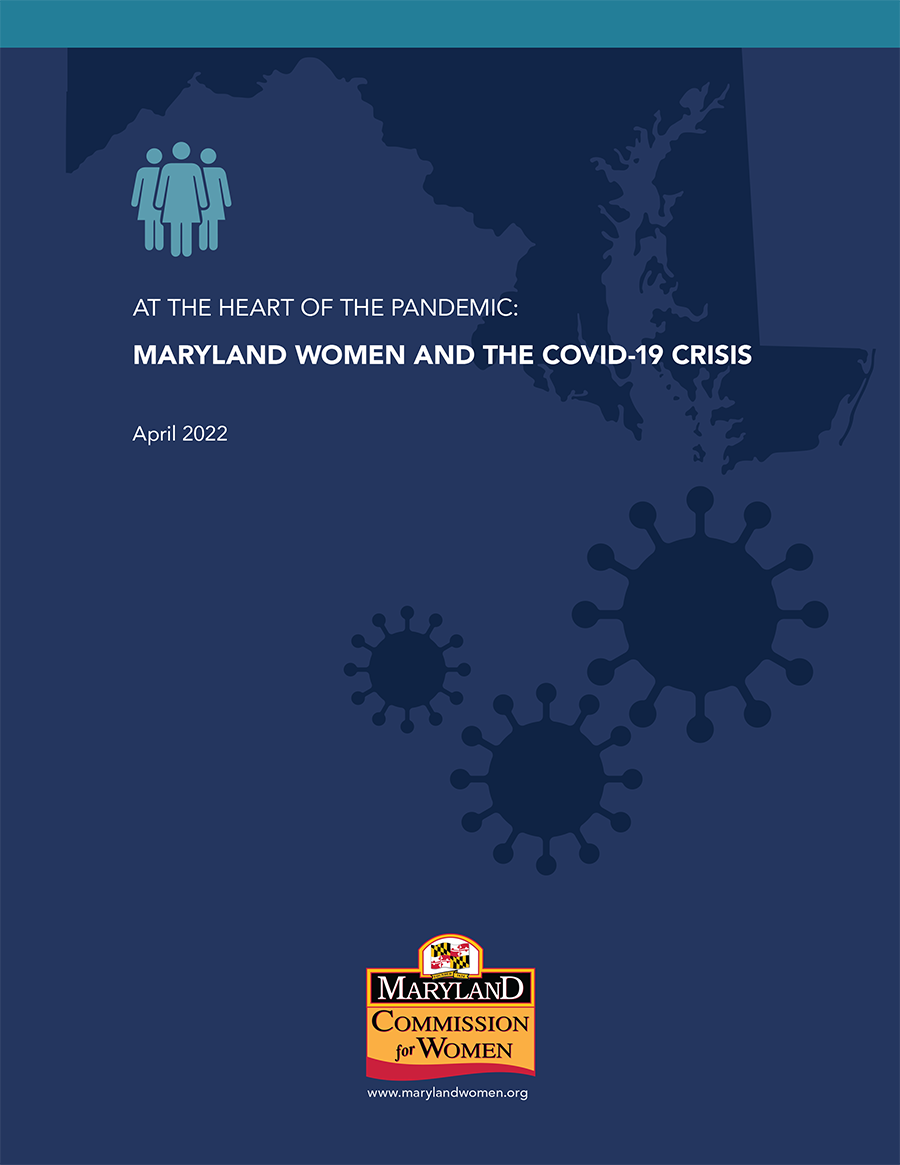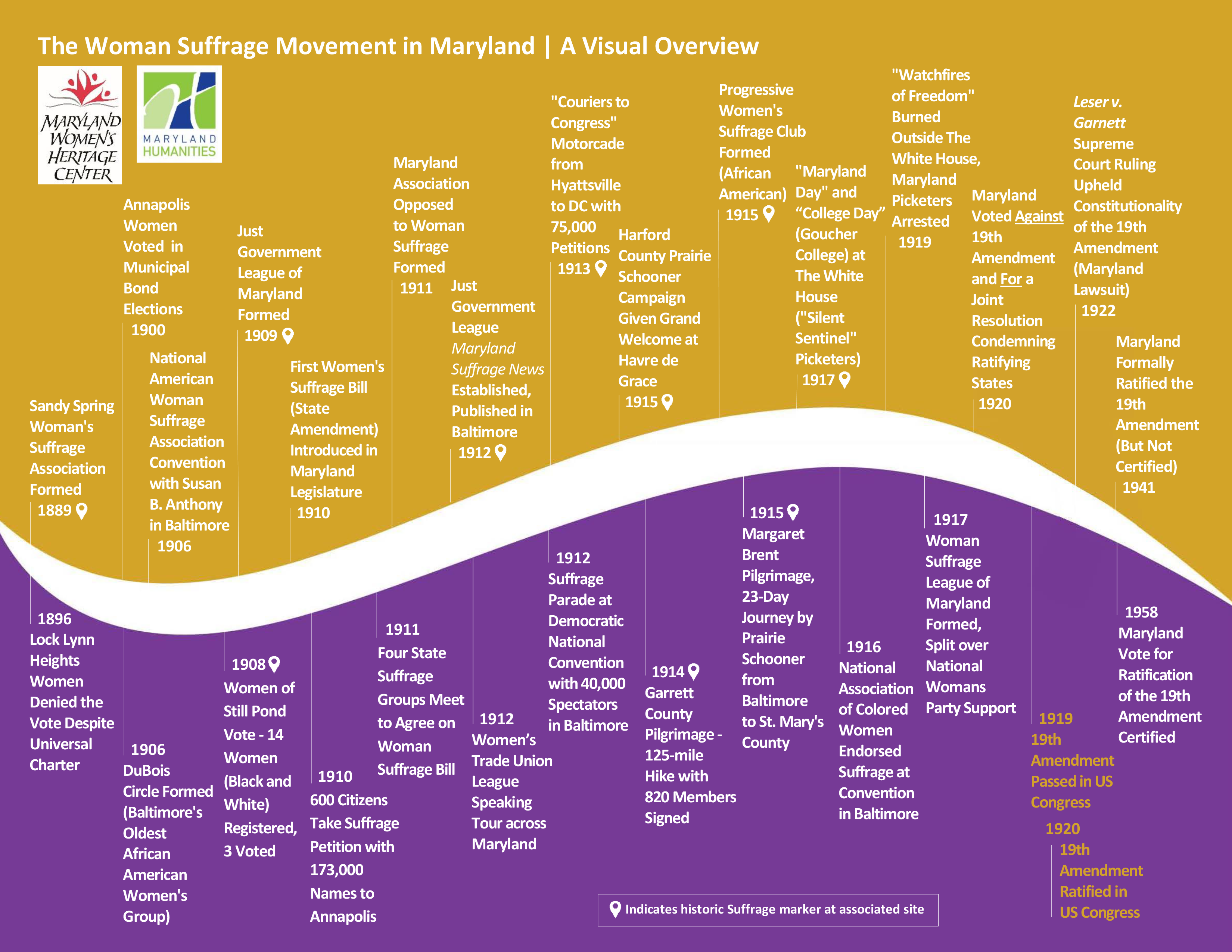(April 5, 2022) The Maryland Commission for Women has just published an in-depth study on the effects that the COVID-19 pandemic has had on the State’s women. More than 4,500 women responded to the Commission’s survey between August and mid-October 2021. In addition, 37 women participated in focus groups in October of that year. The characteristics of survey respondents did not reflect the women of the state; respondents tended to be better educated and their occupations and incomes reflected their generally higher education levels. Even among this more well-off group, serious concerns emerged.
The full report, At the Heart of the Pandemic: Maryland Women and the COVID-19 Crisis, is available on the Commission for Women’s website at www.marylandwomen.org.
The Maryland Women’s Heritage Center applauds the Commission for taking a leading role to advocate for Maryland’s women and their families in the wake of this life-altering event.
Among the findings:
- 43% of the respondents reported delaying medical care during the pandemic
- 65% experienced more anxiety or more frequent anxiety
- More respondents reported losing their jobs than their spouses or partners
- 27% reported not feeling safe returning to the workplace
- 73% were concerned about being around unvaccinated people
- 25% were concerned about their financial situation
- More than half were unable to attend important family events
- More than half are concerned their children have fallen behind in school
- Half reported difficulty juggling children’s care and schooling with the demands of their employment
- 24% were concerned that their employers would not provide the flexibility needed to juggle their children’s schedule and their own work demands
The research also examined larger studies that focused on women of color, women of lower incomes, women with children and women in “essential jobs,” who could not take leave or work from home. Many of the study findings laid bare situations impacting women long before the pandemic.
Three of the 13 recommendations focus on the Commission’s own outreach and ten focus on steps public and private entities can take to ensure that women can balance work and family responsibilities in good times and in challenging times:
- Paid leave should be available, encompassing and flexible.
- Plans should be developed for the complex and conflicting needs of parents and workers for childcare in times of crisis.
- Childcare workers should be better compensated.
- Essential workers should be compensated for the health risks they endured to keep the rest of us safe and supplied during the crisis.
- Mental health needs of workers, parents and children should be addressed
“So many women, despite the insane challenges of the last 16 months, have found a way to make it work. They sacrificed their own health and well-being, their careers, their resources, etc. to care for others and find a way to keep their families afloat.
What are we doing to ensure women can get back on their feet and NOT put themselves, their career and their mental well-being on the back burner? What systems and structures will change to support women in the workplace so that we aren’t struggling to make it all work . . . ?”




